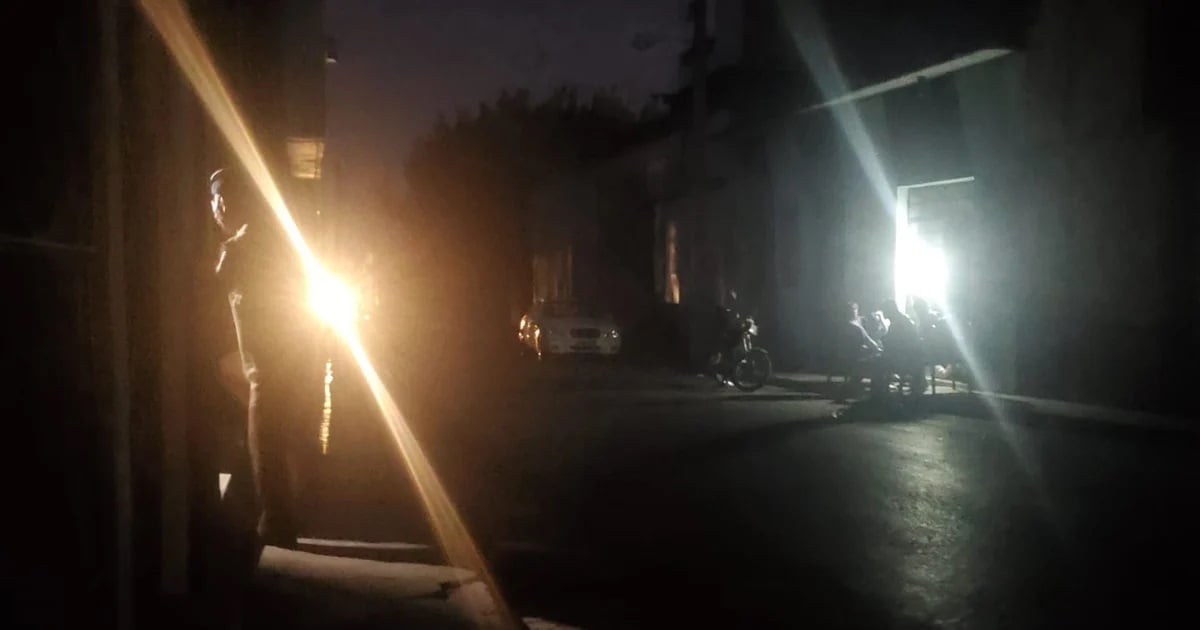The Cuban Electric Union (UNE) reported that three thermoelectric units are out of order this Saturday, which means Cuban households will continue to face extended power outages, with a forecasted deficit of 725 MW during peak hours.
According to the update shared on the entity's Facebook profile, the units currently out of operation due to malfunctions are unit 5 of the Rente Thermoelectric Plant, unit 3 of the Santa Cruz Thermoelectric Plant, and unit 2 of the Felton Thermoelectric Plant. These same units were non-functional on Friday as well.
In addition, 49 distributed generation plants, six more than the previous day, are out of service due to a lack of fuel, representing 540 MW affected. There are also limitations in thermal generation amounting to 538 MW, higher than the previous day.
On Friday, service was restored at 7:48 a.m. but faced disruptions again from 10:20 a.m., continuing through the early hours of Saturday. The maximum disruption was 723 MW at 10:50 p.m.
This Saturday, UNE officials estimate that nine engines from the Melones barge will come online during peak hours, contributing 150 MW, with an additional recovery of 60 MW that are currently out of service due to fuel shortages.
They also forecast a peak hour availability of 2,495 MW and a maximum demand of 3,150 MW, resulting in a deficit of 655 MW. If conditions remain as predicted, an impact of 725 MW is expected during this time.
Government Shifts Blame for Power Outages
This week, the Cuban government distanced itself from responsibility for the duration and frequency of power outages, stating that the schedule and adjustments are made at the provincial level.
In a convoluted explanation of how national "impacts" are calculated based on the deficit in generation capacity and expected demand, Vicente De la O Levy, Minister of Energy and Mines, stated that distribution by provinces is based on which circuits can be turned off and which cannot, depending on local priorities and specific circumstances.
De la O Levy himself acknowledged the government's failed strategy to prevent blackouts during the summer.
According to the official, planned maintenance was carried out in the first half of the year, which was supposed to result in outages of about four hours from January to June 30. "What we failed to meet were the planned hours. What happened? Along with the maintenance load we had planned, there were significant impacts in this semester with the issue of fuel," De la O Levy said on the televised Round Table program last Wednesday.
"There were significant impacts with the fuel issue, especially in the months of March, May, and some days in June," the official added, admitting that power outages lasted up to "12 hours in some places."
Frequently Asked Questions About Cuba's Power Outages
Given the ongoing electricity crisis in Cuba, many people have questions about the current situation and its underlying causes. Here are some frequently asked questions and their answers:
Why are there prolonged power outages in Cuba?
The prolonged power outages in Cuba are due to a combination of factors, including malfunctions in key thermoelectric units, a lack of fuel for distributed generation plants, and limitations in thermal generation capacity.
What is the role of the Cuban government in managing power outages?
The Cuban government claims that the schedule and adjustments for power outages are managed at the provincial level, based on local priorities and specific circumstances. However, the government has been criticized for its ineffective strategies to prevent blackouts.
How does fuel shortage affect power generation in Cuba?
Fuel shortages significantly impact power generation in Cuba, particularly affecting distributed generation plants. This contributes to the overall deficit in electricity supply and extended power outages.
